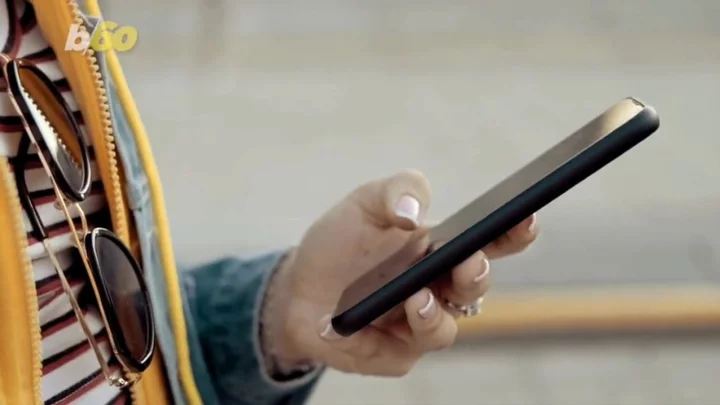From "quiet quitting" to "Bare Minimum Mondays," the workplace is no stranger to viral career and employment trends - with the latest one to make rounds being all about the "Lazy Girl Job."
"Lazy Girl Job" is going viral on TikTok where the term was originally coined by Gabrielle Judge, and has already received over 12.2 million views.
“I’m a big fan of ‘lazy girl jobs’. There’s a lot of jobs out there where you could make $60,000 to $80,000, so pretty comfortable salaries, and not do that much work,” Judge said in the video.
Sign up to our free Indy100 weekly newsletter
The reason she used the word "lazy" as the adjective is because the kind of jobs she's on about "should feel like as if you are almost operating at a lazy state when compared to the American Hustle culture."
In the caption, Judge added: "Career advice for women who don’t know what remote job to apply to.
"You can pay your bills at not feel tired at the end of the day. Women are here to collect those paychecks and move on from the work day.
@gabrielle_judgeCareer advice for women who don’t know what remote job to apply to. You can bay your bills at not feel tired at the end of the day. Women are here to collect those pay checks and move on from the work day. We have so much more fun stuff happeneing in our 5-9 that is way more important than a boss that you hate. #corporatejobs #jobsearchhacks #remoteworking #antihustleculture #9to5
"We have so much more fun stuff happening in our 5-9 that is way more important than a boss that you hate."
But, how beneficial is this new work trend?
Workplace wellbeing expert and CEO of Officeology, Adam Butler, has shared his thoughts on this new viral TikTok trend:
“I can understand why people are getting behind this new workplace trend. The premise of the ‘Lazy Girl Job’ is finding a job where you can put in minimal effort, but receive maximum rewards - the dream for most employees, no doubt?
He then goes on to explain some of the upsides to this new trend of the "Lazy Girl Job."
"I do believe this trend has some positives. Firstly, it is highlighting the ever-increasing need for employees to have a good work/life balance, which I believe is especially important when it comes to working parents.
"Being able to spend as little time focusing on work and not bringing the stresses of the day back home is crucial to ensuring a fulfilling life and I think employers should be focusing on creating a workplace culture that promotes a healthy work/life balance."
"They could do this by introducing a flexible working system, similar to the 4-day working week, or simply giving employees time back, whereby they receive an hour or so of paid time within the working week to do whatever they like, whether it be going to the gym or spending time with their loved ones.
However, Butler also notes that the term "lazy," can have bad implications.
"Having said that, I do believe that the name of this new trend presents negative connotations. Just because employees are wanting easier job roles, does not make them necessarily lazy," he said.
"For instance, I see nothing wrong in workers wanting less stress and pressure when it comes to their working day, but I think we need to be careful that this does not become stereotyped as these people being ‘lazy’ or unskilled.
"The consequences of promoting ‘Lazy Girl Jobs’ can negatively impact the roles that are associated with this trend.
"For instance, Gabrielle mentions roles such as marketing associates, account managers and customer success managers as particular roles that fit into the ‘Lazy Girl Job’ category.
Consequently, Butler believes this could lead to positions being generalised as ‘Lazy Girl Jobs," despite the role still requiring expertise and hard work to complete, and potentially take away the importance of these jobs as a result
"This could then potentially lead to a hustle culture forming, which ironically, is everything this new trend is trying to diminish," he added.
"The reason a hustle culture could form, especially amongst the younger generations, is that companies could put added pressure onto younger employees.
Butler concluded: "Moreover, employees may feel they need to prove that they are hard-working and not ‘lazy’ due to the feeling of being stereotyped under TikTok trends that pose negative connotations to character, such as the ‘Lazy Girl Job’.
Have your say in our news democracy. Click the upvote icon at the top of the page to help raise this article through the indy100 rankings.









